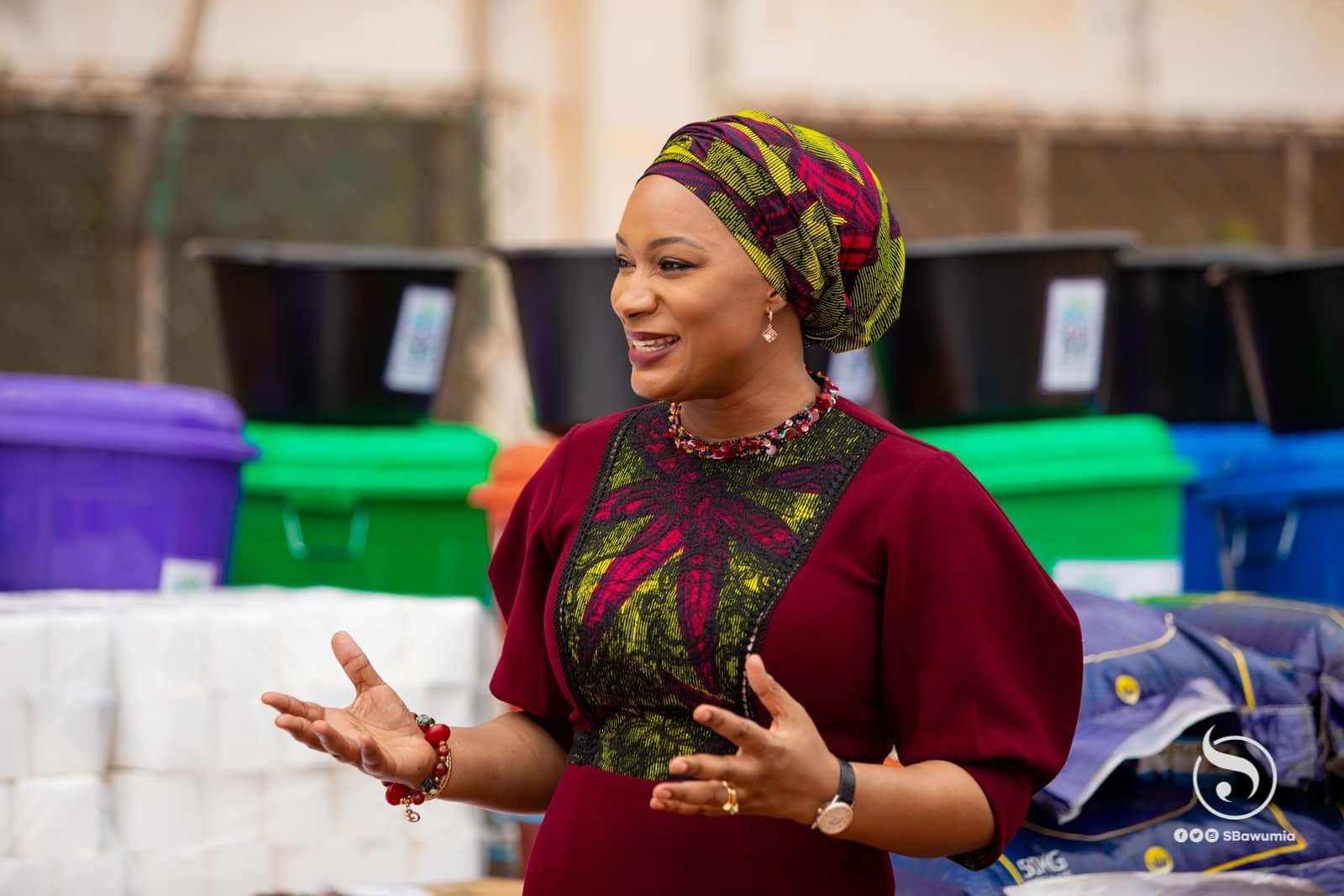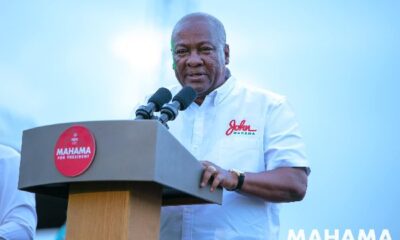Published
4 years agoon
By
Joe Pee
She warned against using women for votes instead of removing barriers to women empowerment.
On this score, she said, the NPP has a better record for promoting female political participation than the NDC, even though no woman has ever been chosen as running mate to an NPP flagbearer.
“Generally speaking, NPP has done better with women. We have more women in parliament, we have appointed more women generally. So, we have done better,” she said during an interview on Asaase FM’s on Sunday, October 11.
There are 36 women in a parliament of 275 MPs. The NPP has 24 female MPs. The NDC has 12.
Even though Samira Bawumia welcomed the promotion of women, she does not think a singular act of choosing Professor Naana Jane Opoku-Agyemang would not negate the “incompetence” of former President John Dramani Mahama who is seeking another term as president.
She insisted that: “Having a running mate who is a woman necessarily doesn’t mean that they (NDC) are more interested in promoting women”.
She questioned whether it was enough for the NDC “to put her there” as a running mate and stated her preference for solutions to barriers of entry “to create an environment that allows women themselves to be there”.
This, she said, the NPP leads their peers.
She cautioned against hiding behind one act to create a false impression that the interest of all women was a priority.
“We have to be careful about tokenism in terms of women and ask ourselves, is it about having the woman or is it about a culture of women being in the party?”
She concluded that both political parties have a long way to go in addressing the gender gap.
Four years after her famous tag against Mahama in the build-up to the 2016 elections, she said she stands by her comments insisting Mr Mahama is tainted and not fit to come back to power.
Women involvement in politics
In the 2016 election, out of 1,158 aspirants who contested for parliamentary seats, 136 were women representing only 11.7%.
Of the 136 female candidates, 40 were from the NDC and 29 from the NPP; the remaining 67 were from smaller parties or were independent candidates and were highly unlikely to win a seat under Ghana’s stable two-party system.
Out of the 136, only 36 won, 12 from the NDC, and 24 from the NPP.
Since 1992, only 94 women have been elected as legislators.
The NPP has elected the most female parliamentarians with 45 while the NDC has 44.
Ninety out of a total of 1,610 candidates elected to Ghana’s Parliament since the return to constitutional governance in 1992, means the share of women stands at a paltry 5.8%, per an analysis of theghanareport.com’s political desk.


Mahama Vows to Usher in Era of Fiscal Discipline and National Renewal


Elon Musk changes his name to Kekius Maximus on X


Mahama Calls for Unity Among Political Parties to Drive Ghana’s Renaissance


President-elect Mahama Rallies NDC Supporters: “Pray Harder for Ghana’s Transformation”


Ghana’s Economy on the Rise: President Akufo-Addo Highlights Robust Growth in 2024


EC Declares Final Verdict in Dome Kwabenya: Faustina Akurugu Elikplim Clinches Victory Amid Controversy


Thousands displaced as post-election unrest grips Mozambique


Former Black Stars Player Samuel Inkoom Faces Court Over Alleged Visa Fraud


Stonebwoy and Samini Mend Ties with Emotional Reunion at 3FM All White Party

























